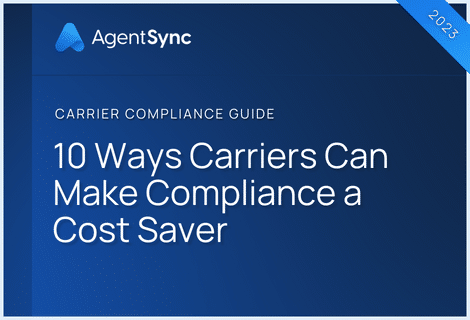

While the vast majority of U.S. insurance industry chatter applies to our markets alone, every once in a while we’ll hit upon areas that remind us the world is bigger than our 50 states and various assorted territories.
For instance, many reinsurers aren’t domestic. Many excess and surplus lines insurers are outside of the U.S. as well. So, for a moment let’s consider what insurance looks like beyond our borders.
U.S. regulation of alien insurers
State laws regulate both domestic insurers and alien insurers. Alien insurers in this case aren’t E.T., they’re insurers that are domiciled in other countries.
Alien insurers looking to sell surplus lines are most likely to find success by applying with the National Association of Insurance Commissioners (NAIC) to be included on its Quarterly Listing of Alien Insurers. As a sidenote, often, “foreign” insurers in U.S. law are insurers that aren’t domiciled in a particular state, but are domiciled in the U.S., while “alien” is the industry term for insurers domiciled in other countries.
For alien carriers looking to do business as admitted insurers in the U.S., state laws outline provisions for verifying solvency and establishing a locally domiciled affiliate.
International collaboration for the insurance industry
The U.S. regulates the way alien insurers operate in the states, and other countries do the same. The net effect is, in a world of increasing global trade, one country’s approach to regulation can extend beyond its borders.
Things like the European Union’s General Data Protection Regulation (GDPR) have had a domino effect on U.S.-based companies. Many non-European companies have ended up complying on some level in order to keep doing business in the EU, or because the GDPR has pushed other countries to take similar measures, or because the GDPR has become a best-practices standard for businesses to follow.
In a very insurance-specific way, regulations like the Insurance Distribution Directive (IDD) in the EU have trickle-over effects on American companies. The IDD sets corporate governance standards for insurance carriers, and has more rigid requirements for the way insurers and reinsurers develop products. While these laws are only enforceable in the European market, many of these companies, particularly reinsurers, match the rest of their business to the IDD as the standard for compliance.
As we see in the states, a regulation in one jurisdiction can have outsized impacts in others. For instance, Wyoming does not give the Department of Insurance rate-setting authority for most products, but they do for long-term care insurance. Previously, Wyoming didn’t set rates for LTC, but many other states did. The result was that insurers were subsidizing contracts in other states by increasing prices for Wyoming consumers, sometimes to the tune of 125 percent increases in a single year.
In response, the Wyoming legislature gave its DOI rate-setting authority to protect consumers from shouldering disproportionately expensive premiums.
So, how do countries avoid this kind of market spillover?
The IAIS (like the NAIC but for countries :D)
There are many, many bodies that promote international collaboration, but, when it comes to insurance, one worth noting is the International Association of Insurance Supervisors (IAIS). This group functions internationally similar to the way the National Association of Insurance Commissioners (NAIC) functions more locally. With delegates from many countries around the world, the IAIS provides a forum for collaboration, information sharing, and a common language for the insurance issues de jour.
Members are the appropriate government entities from their respective countries, so, in the U.S., the Federal Insurance Office of the Department of the Treasury, the NAIC, and the Board of Governors of the Federal Reserve are all members. Other countries’ membership may be made of insurance-specific boards or broadly financial entities (such as Uruguay’s Banco Central del Uruguay and Superintendencia de Servicios Financieros).
Global industry considerations
If the IAIS is representative of global priorities, then that gives us a sample of what occupies the global discourse. The IAIS has what you might consider “standard” topics for discussion and regulation, things like solvency concerns, product standards and guidelines, and consumer protections. But the organization also has a topics list that identifies trends and future-facing areas it has identified as needing collaboration among its member countries.
IAIS topics
- Climate risk: The IAIS identifies climate risks as threatening insurers because of their exposure to physical location issues or global shortages, as well as the risk of insuring properties that may have outsized damages due to climate events. Assessing and mitigating these risks is a key theme within the IAIS’s strategic plan.
- Conduct and culture: It’s not the strictly “business” business decisions that can affect a company; the risk of bad actors being enabled or defended by their companies is a real threat to insurers both in their own businesses and in their insured partners.
- Cyber risk: As the world is more interconnected, our risks pose wider-reaching threats to the financial stability of our shared economies. Cyber attacks can threaten economic stability and lead to real harm.
- Digital innovation: Financial technology is expanding more rapidly than the world’s governments can keep up with. While there are numerous positives from the expansion of fintech, there are also challenges and consumer threats – things like privacy violation and financial mismanagement – that the IAIS says member countries need to get ahead of.
- Diversity, equity, and inclusion (DEI): The IAIS notes that all other topics and priorities are dependent on furthering a more sustainable and inclusive industry, and that DEI goals are baked into each step of the IAIS strategic plan.
- Financial inclusion: Financial inclusion is, broadly, the idea that developed nations should help foster economic growth – in this case, specific to insurance – in developing nations. As the IAIS said, “Less than fully effective inclusion can, and has, led to financial sector instability.” Financial inclusion has also been a driving topic of conversation at the G20 summit, with world leaders well beyond insurance agreeing that more universal participation in a world economy is key to sustainability for all nations.
Many of these concerns already factor heavily in the U.S. insurance landscape, with cyber risks, DEI, and climate change all making up their own tracks in most major conferences. But it’s worth noting that the global stage is concerned about integrating new companies and finding more market potential in countries that don’t yet have the economic capacity. How regulators continue to balance market sustainability and consumer protection will undoubtedly be an active conversation for years to come.
U.S. territories
For many states, international insurance priorities are somewhat ephemeral. But for the U.S. territories – and Puerto Rico in particular – their “both/and” position makes the concerns of international trade hyper-relevant.
Puerto Rico in particular has a unique role. Islanders are U.S. citizens, and Spanish and English are both official languages of the country. This makes it an attractive port for many businesses, especially those looking to do business in South America. Because Puerto Rican residents have access to U.S. infrastructure and are an educated, multilingual workforce, insurers find a ready path to international sales.
The Puerto Rican government, for its part, welcomes international insurance trade and provides oversight and assistance through the Office of the Commissioner of Insurance’s International Insurers and Reinsurers Division (IIRD). The IIRD offers many tax incentives and organizational opportunities for companies that do business there.
AgentSync’s services are exclusive to the United States and its territories, so we can’t help you stay up on international insurance requirements. But if you’re trying to keep up with domestic licenses, appointments, and other administrative requirements, we’re here for that. Schedule a demo today.

